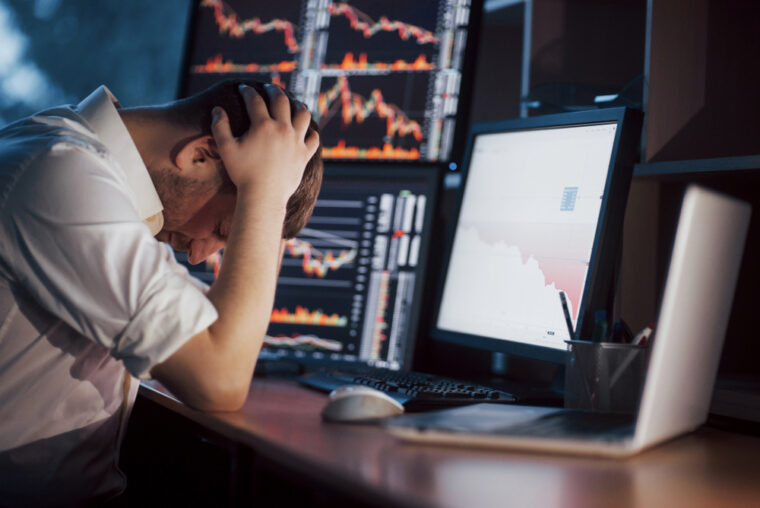Although investing in crypto can be incredibly exciting, for many just getting into the cryptocurrency scene, it can also be a process fraught with frustrations, missteps and misunderstandings.
The learning curve for getting started with cryptocurrency tends to be quite high, as not only do you need to learn the fundamentals of what cryptos are and how their underlying technology works. You also need to learn to trade in a market that tends to be incredibly volatile. This has proved particularly problematic in the last number of months, with the cryptocurrency markets experiencing large swings both up and down!
Although this environment will prove challenging for crypto traders of all skill and experience levels, it is ultimately beginner traders that will be the quickest to experience frustrations. In this context, difficult trading conditions will only be made all the more difficult by the common mistakes that rookie traders tend to make.
But if you are one of the many novice traders getting started on trading platforms such as okx.com in recent months and years, what are the most common mistakes you need to avoid when trading cryptocurrency? More importantly, how can you avoid making these crypto trading mistakes again and again? Keep reading to find out!
Slacking with Your Digital Security
Perhaps the most important mistake many rookies tend to make, and which is surprisingly common even among more experienced traders, is being lazy with your online security.

As a digital asset, having a digital wallet is an essential part of crypto ownership. However, while the best possible practice is to keep your funds stored in an offline wallet in what is known as ‘cold storage’, a surprising number of crypto traders store their digital assets online. Generally speaking, online wallets are more vulnerable to third-party access and may even leave holders open to a scam or hack.
With that said, if you want to practice good safety, try and store your cryptocurrency in an offline hardware wallet. These are essentially USB sticks that are encrypted and can’t be accessed online.
Other good security practices to get into the habit of doing include enabling two-factor authentication on all of your crypto trading accounts, changing your passwords regularly, beefing up your device’s anti-virus protection and even masking your IP address.
Getting Tempted Into Over-Leveraging Their Trades
Although it can give you the opportunity to maximize your profits, leveraged trading is not something that should be approached lightly.
Leveraged trading, which is essentially the use of borrowed funds to increase a trading position, often requires up-front collateral. If the market moves against you and your trade goes badly, you may find yourself significantly out of pocket.
While this risk is always present in any trade you make, rookie traders tend not to fully appreciate the risks of leveraged trading and can find themselves over-leveraged if they are not careful.
Getting Too Complicated Too Quickly

Another cryptocurrency mistake that rookie traders make with an alarming level of frequency, is to try and get too complicated too quickly when it comes to their trading strategy.
New crypto investors and traders often have a tendency to try to jump into the deep end when it comes to learning about different trading strategies. In this context, there can often be a tendency to try and attempt the latest, complicated trading strategy their influencer of choice has introduced them to.
However, this does not need to be the case. Rather than blindly following the most complicated trading strategy you have come across online, you will often be better served by following simple approaches such as dollar-cost averaging, being risk averse and never investing more than you are willing to lose.
Choosing the Wrong Trading Platform
With the influx of new trading platforms in recent years, traders of all skills and experience levels face an unprecedented level of choice when it comes to choosing who to trade with. While more experienced traders might be able to navigate this decision with relative ease, this will more than likely not be the case for those of you just getting started.
Choosing the right platform to trade with is an incredibly important decision to make and will have a big impact on what kind of trading experience you have.
To choose the right platform for you, be sure to pay attention to: the user-friendliness of the platform, the selection of assets available, the fees they will charge you for trading, what level of security they offer, whether they are fully licensed and authorized and the compliance systems they have in place.
Trading Emotionally

One of the main things that separates an experienced trader from a novice is the ability to distance your trading decisions from your emotional state.
Beginners tend to react emotionally to market news, which inevitably impacts their trading decisions. In an ideal world, however, you will be able to maintain some degree of distance between the emotional and analytical parts of your brain.
Doing so will enable to you make better trading decisions and to avoid impulsive tendencies or trading based on a ‘fear of missing out’.
